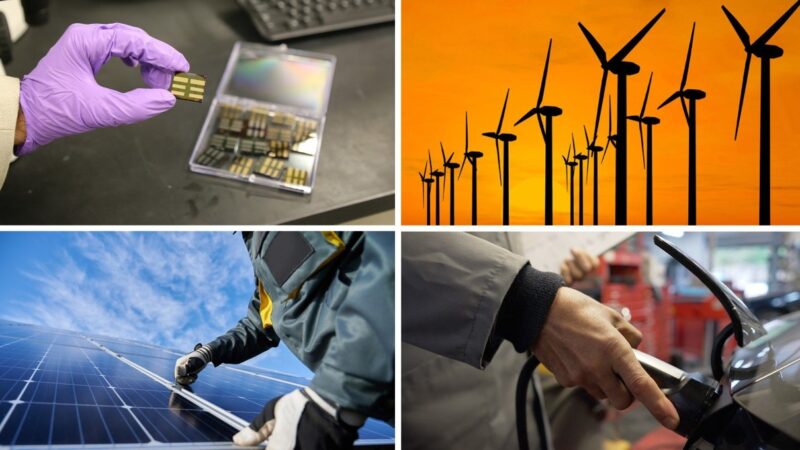The Road Ahead: A Closer Look at Automotive Technology
In today’s fast-paced world, where innovation drives progress, few industries have experienced as much transformation as the automotive sector. From the earliest automobiles that revolutionized transportation to modern vehicles equipped with cutting-edge technology, the journey has been nothing short of remarkable. In this exploration of automotive technology, with the assistance of Business Hubday, we’ll take a human-centered approach to understand the impact and evolution of these advancements on our daily lives.

The Automotive Evolution
The automotive industry’s evolution is akin to a thrilling saga. It began with the invention of the first practical automobile in the late 19th century and has since unfolded as a story of innovation, convenience, and environmental responsibility.
Early Milestones: The automobile’s journey started with the likes of Karl Benz and Henry Ford, whose pioneering efforts paved the way for mass production and affordability.
Internal Combustion Engine: The development of the internal combustion engine became the heart of most vehicles, propelling us forward with newfound speed and efficiency.
Safety Measures: Over the years, automotive technology prioritized safety. Features like seatbelts, airbags, and advanced braking systems have saved countless lives.
Environmental Concerns: As environmental awareness grew, so did the need for eco-friendly options. Hybrid and electric vehicles (EVs) emerged as game-changers, reducing emissions and our carbon footprint.
The Digital Age: Automotive Technology Today
Today’s vehicles are more than just modes of transportation; they are sophisticated machines with advanced digital features that enhance both convenience and safety.
Connected Cars: The concept of the “connected car” has taken center stage. These vehicles offer internet connectivity, enabling features like real-time navigation, remote diagnostics, and in-car entertainment.
Advanced Driver Assistance Systems (ADAS): ADAS features like adaptive cruise control, lane-keeping assist, and autonomous emergency braking are making driving safer than ever before.
Infotainment Systems: Modern cars are equipped with intuitive infotainment systems, transforming vehicles into multimedia hubs. Touchscreens, voice commands, and smartphone integration have become standard.
Electric Revolution: EVs are no longer niche; they are becoming mainstream. With longer ranges, faster charging, and expanding infrastructure, they offer a sustainable and cost-effective alternative to traditional gasoline-powered vehicles.
Challenges and Opportunities
While automotive technology has made our lives more comfortable and efficient, it also presents challenges.
Data Security: As cars become more connected, data security becomes paramount. Safeguarding personal information and preventing cyberattacks are ongoing concerns.
Autonomous Vehicles: The dream of self-driving cars is on the horizon, but regulatory and safety hurdles remain to be overcome.
Sustainability: Electric vehicles are a step in the right direction, but the automotive industry must continue to reduce its environmental impact through efficient manufacturing and recycling practices.
Infrastructure: Widespread adoption of EVs necessitates significant investments in charging infrastructure, especially in rural and less developed areas.
The Human Element

Amidst all the technological advancements, it’s essential to remember that the automotive industry remains fundamentally human-centric.
Personal Mobility: Cars are more than machines; they represent personal freedom and mobility. They empower individuals to explore, commute, and connect with loved ones.
Jobs and Communities: The automotive industry supports millions of jobs globally, from manufacturing to sales and service. It plays a pivotal role in shaping communities and economies.
Memories and Adventures: Every car has witnessed countless road trips, family vacations, and life’s significant moments. They are vessels of cherished memories.
Aspirations and Dreams: For many, owning a car symbolizes achievement and progress. It represents the realization of dreams and aspirations.
Looking Ahead
The road ahead for automotive technology is filled with exciting possibilities. We can anticipate:
Further Electrification: EV technology will continue to evolve, making electric vehicles more accessible and practical for everyday use.
Autonomous Driving: Although still in development, autonomous vehicles hold the promise of safer and more efficient transportation.
Sustainability: The automotive industry will strive for sustainability through green manufacturing, recycling, and alternative fuel sources.
Customization: Vehicles will become even more personalized, with consumers able to tailor their cars to their unique preferences and needs.
In conclusion, automotive technology‘s journey is a testament to human ingenuity and our desire for progress. It has shaped the way we live, work, and travel. As we move forward, let’s remember that the road ahead is not just about technology; it’s about people and the experiences, opportunities, and challenges that make the automotive industry a dynamic and integral part of our lives, with Business Hubday as our guide.






